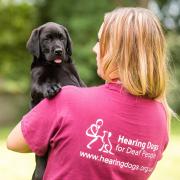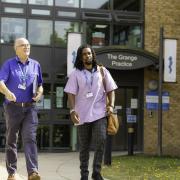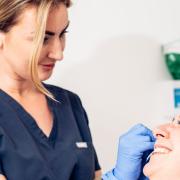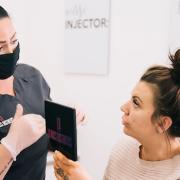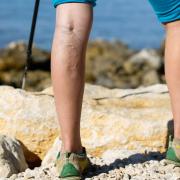Nuffield Health Tunbridge Wells has invested in cutting-edge diagnostic equipment that can ease a great many health concerns, pinpoint underlying conditions and monitor ongoing treatments.
The hospital has recently installed a CT scanner, MRI equipment and a brand-new mammography suite - helping patients and practitioners to get a far more comprehensive view of illnesses and injuries.
We sit down with Rebecca Roll, radiology manager, and Paula Feehan, lead CT radiographer, to discuss the advantages of heading to a private practice for a CT scan.

Q: What are CT scans and how do they work?
A: A CT scanner, also known as a CAT scanner, is an X-ray machine that uses a computer to create 3D images of the body and internal organs. A helical scan of the specific area produces data that is processed by the computer, creating detailed and clear cross-sectional images.
The level of detail within the images means that radiologists are able to detect very small abnormalities. CT scans are therefore a first-line diagnostic tool in cancer staging, discovering small kidney stones and examining the fine bones within the inner ears.
Q: How long do CT scans take?
A: Patients can expect their entire appointment to take up to 40 minutes, however this will include time spent going through a pre-scan questionnaire. CT scans are often enhanced by an injection of dye, which enables a better visualisation of the blood vessels and internal organs for the consultant. The actual scan will only take a few minutes.
Longer appointment times are one of the major benefits of coming to Nuffield Health, as we can explain the process in detail and allow patients to voice any concerns or ask any questions that they may have.
The entire scanning process is also very streamlined, as the changing cubicle leads directly into the scan room. We have found that the increased privacy afforded to patients has a noticeable impact on their comfort levels before, during and after the scan.
Q: What can CT scans be used to diagnose?
A: CT scans are an extremely versatile method of identifying a wide range of medical conditions. Some examples of where these scans are particularly useful would be:
- Cancer treatment – one of the most effective tools in the battle against cancer, CT scans can help to determine the size, shape and location of a tumour during the very early stages. They can also monitor any changes that occur during treatment or after surgery.
- Post-covid issues – the reassurance that CT scans bring is a huge boost, especially to people who worry about the impact of long-covid. In these early stages of understanding the effects of long covid, a CT scan could be performed in order to look for any damage to the structure of the lungs.
- Complex fractures – by creating 3D images of the affected area, the surgeon is then able to use the images as a visual aid to plan surgery.
Doctors have also utilised CT scans as a far less invasive method of searching for kidney stones – in the past, patients would have had an intravenous injection to check their urinary system.
This test was quite uncomfortable as it involved a series of images, often using compression bands across the abdomen. CT scans have made these types of examinations much quicker and more accessible for patients.

Q: What are the advantages of receiving treatments at a private hospital?
A: We put a lot of time and effort into making this hospital a calm, welcoming environment for our patients. Alongside the high-quality services, we deliver a quick turnaround for scan and test results. The dignity and peace of mind of our patients is a top priority, as well as building trust and rapport between the staff and those in our care.
Q: How can someone get a CT scan at Nuffield Health Tunbridge Wells?
A: The NHS provide a fantastic service throughout the UK and we are proud to work alongside it. If you have been referred to a consultant by a GP, they may then refer you directly to us for a scan. We also have a number of expert consultants and surgeons here at Nuffield Health who can offer treatment if required.
Please note that all scans require a medical referral from a GP or consultant.
To find out more about diagnostic scans, or to book an appointment, visit nuffieldhealth.com/diagnostics or call 01892 531 111.



